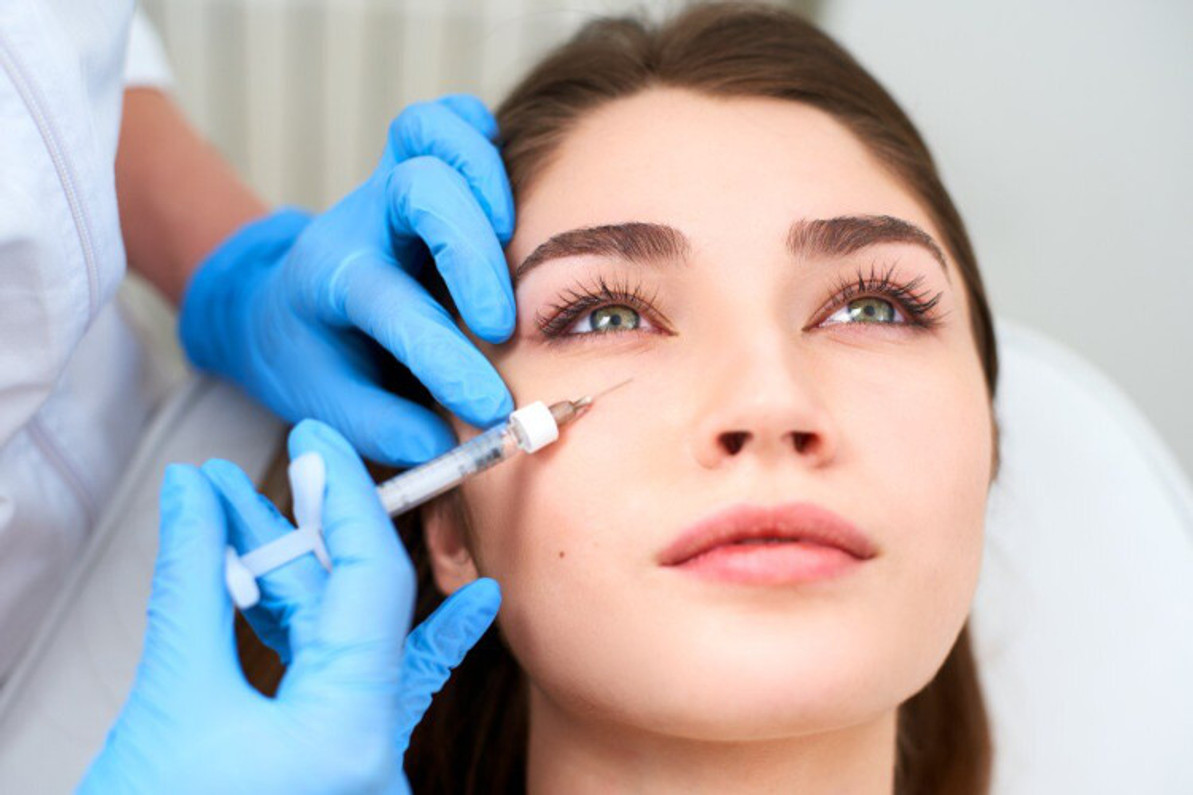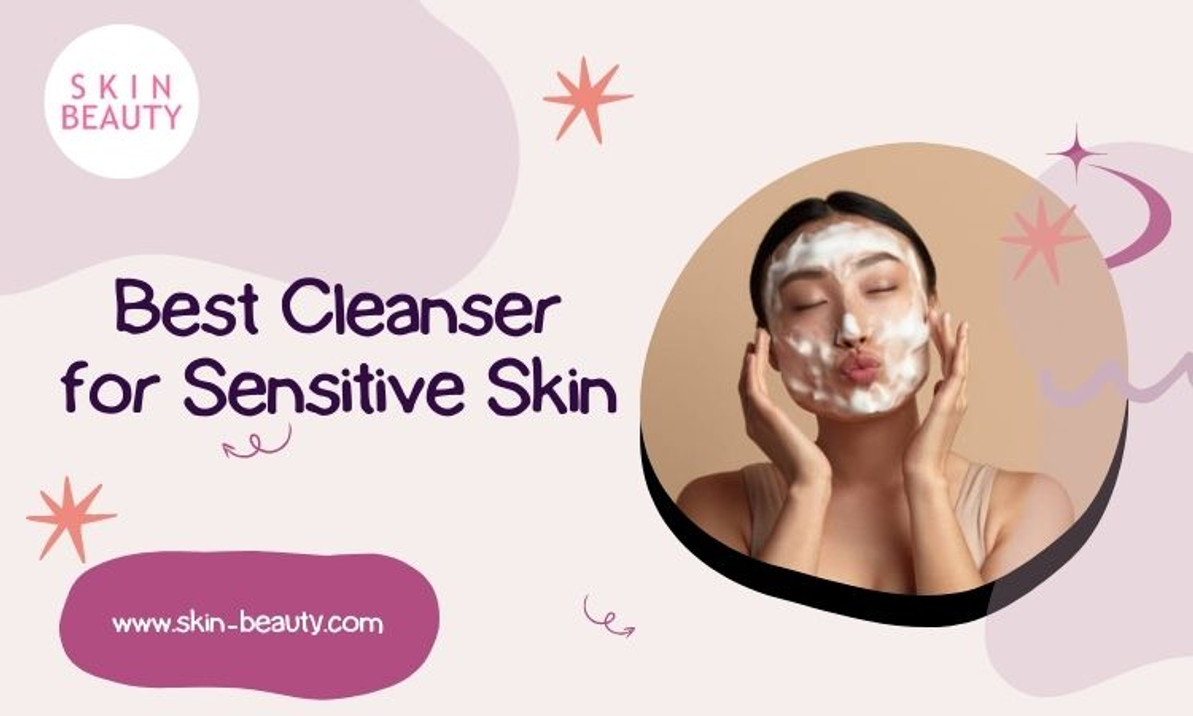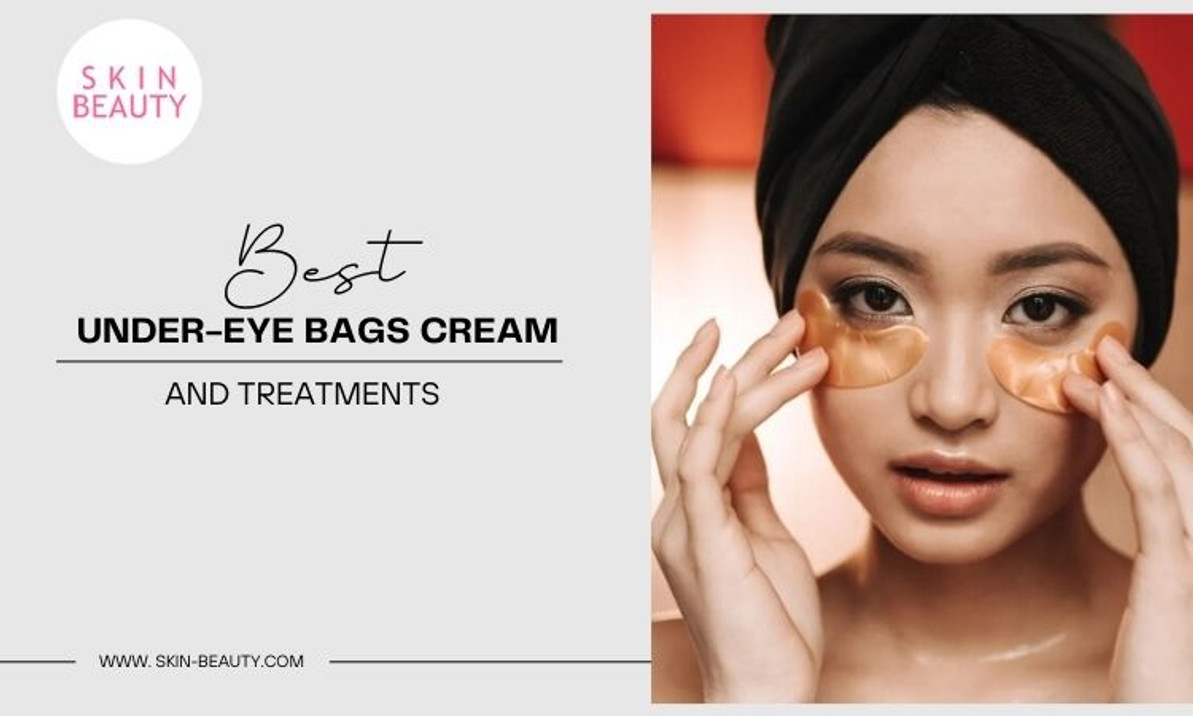Under Eye Botox
Exploring the Benefits of Under Eye Botox Injections
Are you tired of looking in the mirror and seeing those pesky under-eye wrinkles staring back at you? You’re not alone! Many people are turning to under-eye Botox injections as an effective solution to achieve a more youthful and refreshed appearance. Dive into this blog post to learn everything you need to know about under-eye Botox injections, from understanding how Botox works to finding a board-certified Botox doctor and post-treatment care. Say goodbye to those under-eye wrinkles and hello to a rejuvenated, confident you!
Key Takeaways
- Under-eye Botox injections provide a safe and effective way to reduce wrinkles and bags for a more youthful look.
- Botox is an increasingly popular treatment that can last up to 6 months, with careful planning and preparation ensuring optimal results.
- By selecting an experienced board certified doctor, post treatment care instructions should be followed in order to maintain beautiful results over time.
Understanding Under Eye Botox

Under-eye Botox injections have become increasingly popular due to their ability to significantly reduce the appearance of under-eye bags and wrinkles, including those on the lower eyelid, giving you a more youthful and refreshed look. Botox, a cosmetic treatment that involves injecting botulinum toxin into facial muscles, temporarily relaxes the muscles and enhances muscle movement to improve the appearance of wrinkles and prevent further wrinkle formation.
Let’s delve into the functioning of Botox and compare it with other under-eye treatments like dermal fillers, various laser treatments, resurfacing treatments, and chemical peels.
How Botox works
Botox, a brand name for botulinum toxin type A, works its magic by blocking nerve signals to muscles, preventing muscle contractions and ultimately smoothing out wrinkles for a youthful, radiant look. By relaxing specific facial muscles, Botox leaves you with smoother, more youthful-looking skin, particularly effective in reducing the appearance of frown lines and wrinkles around the eyes.
By inhibiting acetylcholine, a neurotransmitter, from nerve endings at the neuromuscular junction, Botox results in muscle paralysis and reduced muscle activity. With this mechanism, Botox might be the answer for your under-eye wrinkles.
The role of facial muscles in wrinkle formation
As much as facial muscles give our faces character and expression, they also play a significant role in wrinkle formation. Facial muscles are responsible for:
- the contraction and relaxation of the skin
- allowing it to move and fold in a way that gives it character
- resulting in wrinkles that give the face a unique and attractive look.
Botox aids by temporarily paralyzing facial muscles, preventing muscle movement, and consequently reducing the appearance of wrinkles. Think of it as providing your facial muscles a well-deserved hiatus, or muscle weakness, resulting in smoother, more youthful skin.
Popularity of Botox for cosmetic purposes
Botox has seen a surge in popularity for its cosmetic benefits, including treating under-eye wrinkles and crow’s feet. It can effectively treat these issues by freezing and relaxing the facial muscles at the corners of the eye, resulting in a smoother, more youthful appearance of wrinkles that can last up to six months. The effects of Botox under the eyes typically last from three to four months, making it a popular choice in aesthetic procedures for those seeking a non-surgical solution to under-eye wrinkles.
It should be noted that injecting Botox under the eyes for cosmetic purposes is yet to receive FDA approval, hence a thorough discussion with a board-certified dermatologist about the alternatives is advised.
Assessing the Suitability of Botox for Under Eye Concerns
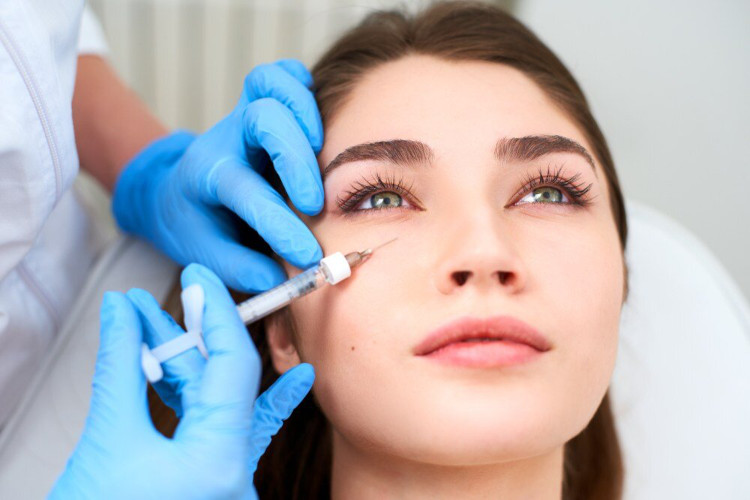
Before jumping into Botox treatment, evaluating its suitability for your particular under-eye concerns is a must. Botox is particularly effective for dynamic wrinkles, as it inhibits muscle contractions, thus preventing wrinkle formation. However, it might not be as effective for static wrinkles, dark circles, or eye puffiness, as other factors such as volume loss or skin laxity may need to be considered. In some cases, hyaluronic acid fillers may be a more suitable treatment option.
Let’s explore the differences between dynamic and static wrinkles, as well as other factors that may affect the effectiveness of Botox for under-eye concerns.
Dynamic wrinkles vs. static wrinkles
Dynamic wrinkles are caused by facial expressions that add character and life to your face, while static wrinkles are due to the natural aging process and sun exposure. Botox is more an effective treatment for dynamic wrinkles, as it targets the facial muscles responsible for their formation, while static wrinkles may require alternative treatments such as dermal fillers or laser resurfacing treatments.
Therefore, Botox could be an ideal remedy if you’re battling dynamic wrinkles under your eyes.
Dark circles and eye puffiness
While Botox might help with under-eye wrinkles, it may not be the best treatment for dark circles or eye puffiness. These concerns can be caused by various factors, such as a lack of collagen or hyaluronic acid in the underlying fat layer of younger skin. In such cases, alternative treatments like dermal fillers or laser resurfacing treatments might be more effective in addressing these issues.
It’s advisable to seek guidance from a board-certified dermatologist to map out the best treatment plan for your specific under-eye issues.
Factors affecting the effectiveness of Botox
The effectiveness of Botox for under-eye concerns depends on several factors, including the patient’s age, skin type, and the severity of wrinkles. Younger patients with less severe wrinkles may require fewer treatments to achieve the desired results, while older patients with more severe wrinkles may require more treatments. Additionally, factors such as muscle characteristics, dosage, treatment area, metabolism, and the quality of service can all positively affect the effectiveness of Botox under the eyes.
Collaborating with a board-certified dermatologist is fundamental in crafting an individualized treatment plan considering all these factors.
Comparing Botox with Other Under Eye Treatments
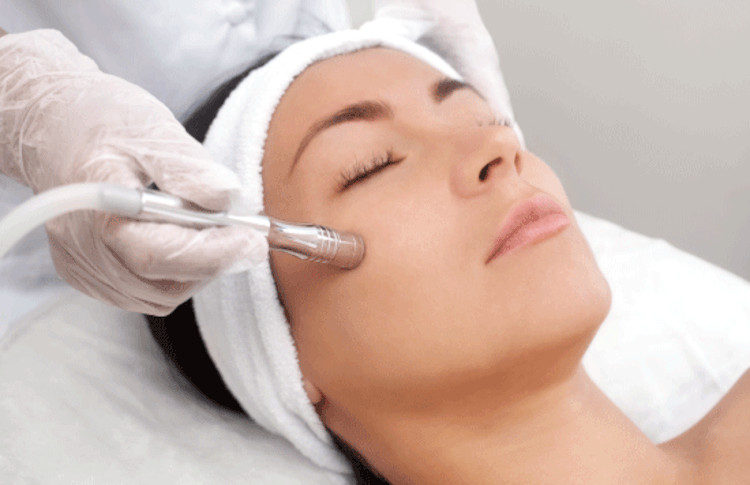
Now that we’ve explored the benefits and limitations of Botox for under-eye concerns let’s compare it to other under-eye treatments, such as dermal fillers, laser resurfacing treatments, and chemical peels. Each treatment option offers its unique set of advantages and disadvantages, and understanding these differences will help you make an informed decision on which treatment is best suited for your specific needs.
Dermal fillers
Dermal fillers, unlike Botox, are better suited for treating volume loss and static wrinkles. While Botox is more effective for dynamic wrinkles, dermal fillers can help address volume loss in the under-eye area and fill in static wrinkles to achieve a more youthful appearance. Both treatments have their place in addressing under-eye concerns, but it’s essential to consult with a board-certified dermatologist to determine which treatment is best for your specific needs.
Laser resurfacing treatments
Laser resurfacing laser treatments, a type of cosmetic surgery, can help tighten skin and improve skin texture, but may not be as effective for dynamic wrinkles as Botox. Laser treatments use a laser to remove the outer layer of skin, encouraging the production of collagen and elastin for a youthful look.
While laser resurfacing treatments can provide benefits such as skin tightening and improved texture of loose skin, they may not offer the same level of wrinkle reduction as Botox for dynamic wrinkles. It’s important to discuss your specific concerns with a board-certified dermatologist to determine the best course of action for younger skin.
Chemical peels
Chemical peels can improve skin texture and tone but may not be the best option for treating dynamic wrinkles. Chemical peels involve applying a chemical solution to the skin to remove the outer layers of dead skin cells, revealing a smoother, more even complexion.
While chemical peels can help improve the overall texture and tone of the skin, they may not provide the same level of wrinkle reduction as Botox for dynamic wrinkles. As always, it’s essential to consult with a board-certified dermatologist to discuss your specific needs and determine the best treatment for you.
The Botox Injection Process

Before embarking on your Botox journey, it’s important to understand the injection process. This involves determining the number of units of botox, units of botox needed, the duration of treatment, and being aware of possible side effects.
Let’s examine each of these elements closely to ensure you are well-equipped for your Botox treatment.
Number of units needed
The number of Botox units needed for under-eye treatment varies depending on the severity of wrinkles and the patient’s goals for aesthetic procedures. The more pronounced the wrinkles, the more Botox units are required to achieve the desired outcome. Your board-certified dermatologist will assess your individual needs and determine the number of Botox units needed to achieve the desired, beautiful results.
This personalized approach ensures that you receive the best possible care and achieve the results you’re looking for.
Duration of treatment
Botox treatments typically last between 3 and 6 months, with follow-up injections recommended to maintain results. It takes only about 7 to 14 days after botox injected for the full effect to be seen and enjoyed.
Arranging for regular follow-up injections is key to sustaining your smooth and youthful looks, as the effects of injecting Botox under your eyes will fade over time.
Possible side effects
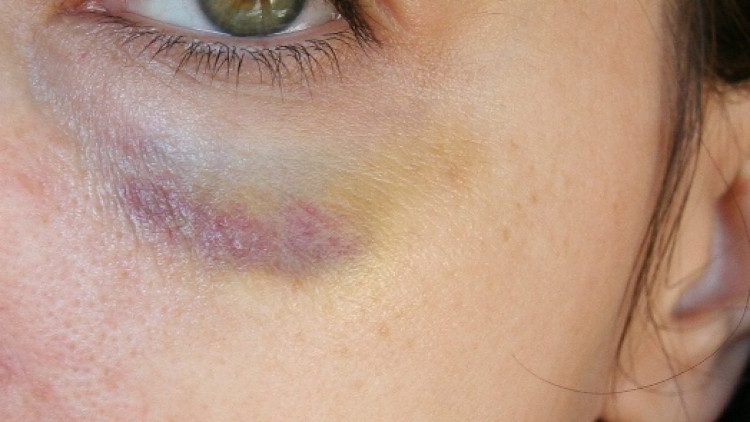
While Botox is generally considered a safe and effective treatment, it’s important to be aware of possible side effects after having too much botox injected. These may include redness, swelling, or bruising at the injection site, as well as headaches or flu-like symptoms. In rare cases, patients may experience difficulty closing their eyes or eye drooping.
Adhering to your doctor’s post-treatment care guidelines and reporting any abnormal side effects is critical for your safety and well-being throughout the treatment process.
Finding a Board-Certified Botox Doctor
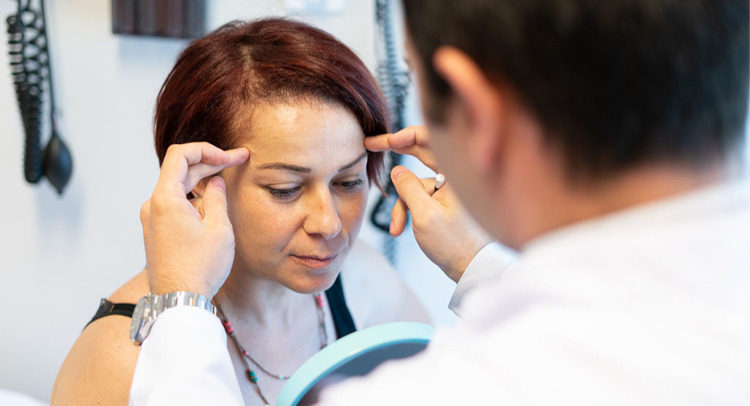
Ensuring you receive safe and effective Botox treatment is of utmost importance, which is why finding a board-certified Botox doctor should be a top priority. Board certification ensures that the doctor has the necessary training and experience to perform Botox injections.
We’ll delve into the significance of board certification, provide tips for choosing a doctor, and set expectations for your initial consultation.
Importance of board certification
Board certification is the highest level of medical professional accreditation within a given specialty, demonstrating mastery of advanced knowledge and skills through rigorous evaluation processes. By choosing a board-certified doctor, you can trust that they have the necessary training and experience to provide you with safe and successful Botox injections.
Never compromise on your health and appearance - always choose a board-certified Botox doctor!
Tips for selecting a doctor
When selecting a doctor for Botox injections, it’s essential to ensure that they are board-certified and have extensive experience in administering Botox injections. Research their credentials, read patient reviews, and view before-and-after photos to get a sense of their work and the potential results you can expect. Don’t be afraid to ask questions about the procedure and make sure that the doctor is utilizing the latest techniques and technologies to provide the best results.
Investing time in selecting the right doctor is essentially investing in your safety and the effectiveness of your Botox treatment.
Initial consultation
During your initial consultation, it’s important to communicate your goals and concerns to your doctor to ascertain if Botox is the right treatment for you. Here are some things to discuss:
- Share any medical conditions you have
- Share any medications you are taking
- Share any allergies you have
- Ask about the doctor’s experience with the specific type of Botox injection being sought
- Ask about the doctor’s experience with the specific area of the face being treated
By discussing these factors, you can ensure the best care possible.
By thoroughly discussing your needs and concerns with your doctor, you can ensure that you’re making the best decision for your unique situation.
Post-Treatment Care and Maintenance
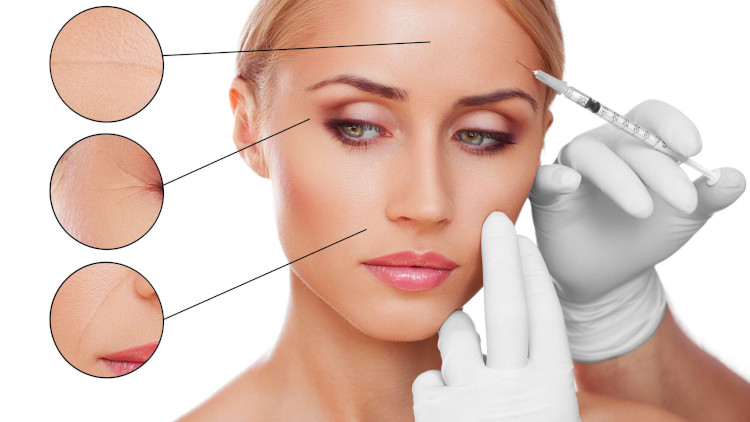
Proper post-treatment care and maintenance are essential for achieving the best results from Botox injections. This includes avoiding strenuous activities, applying ice to reduce swelling, and following the doctor’s instructions for post-treatment care.
In this section, we’ll discuss the significance of post-treatment care, how to maintain the results, and the need for scheduling follow-up injections.
Post-treatment care
Post your Botox injections, adhering to your doctor’s post-treatment care instructions is of utmost importance. This may include avoiding strenuous activities, using ice to mitigate swelling, and refraining from rubbing or massaging the treated area. These precautions will help minimize any potential side effects and ensure that you achieve the best possible results from your Botox treatment.
Maintaining the results
To maintain the smooth and youthful appearance achieved with Botox, it’s essential to practice proper skincare, sun protection, and lead a healthy lifestyle. Skincare keeps the skin hydrated and nourished, while sun protection helps to delay premature aging and wrinkles. A healthy lifestyle, including a balanced diet and regular exercise, can help keep your skin looking youthful and glowing.
By maintaining your skin and overall health, you can extend the desirable results of your Botox treatment.
Follow-up injections
To maintain your smooth and youthful look, it’s recommended to schedule follow-up Botox injections every 3 to 6 months. Regular follow-up injections ensure that the effects of Botox last longer, allowing you to enjoy a refreshed and confident appearance.
By closely coordinating with your board-certified dermatologist and adhering to their advice, you can preserve your stunning results and keep turning heads!
Summary
In conclusion, under-eye Botox injections can be an effective and minimally invasive solution to address under-eye wrinkles and help you achieve a more youthful and refreshed appearance. By understanding the Botox treatment process, finding a board-certified doctor, and following post-treatment care and maintenance, you can enjoy the beautiful results of Botox with confidence. Say goodbye to under-eye wrinkles and hello to a rejuvenated, confident you!
Frequently Asked Questions
Can you do Botox under your eyes?
Yes, you can use Botox injected under your eyes to reduce wrinkles! Botox injections have been found to be successful in eliminating the appearance of lines and wrinkles around the eyes, forehead lines and mouth, though the FDA has not yet approved this use.
Is Botox or fillers better for under eyes?
Botox is usually recommended for reducing fine lines, whereas fillers are better for treating sunken eyes. Surgery can be an option if the condition is severe or the result of another medical issue like metastatic breast carcinoma. Ultimately, it is important to find the best treatment plan for you that meets your budget and desired results.
How much does under-eye Botox last?
Under-eye Botox typically lasts up to four months, so you can enjoy your results for a significant amount of time before needing a touch-up. The price may vary from $10-$20 per unit or $150-$500 per under eye treatment per area.
What are the side effects of Botox under eyes?
Common side effects of Botox injections under the eyes include temporary, mild swelling of, bruising, and redness at the injection site, as well as pain sensitivity, muscle weakness, or a slight drooping of the lower eyelids. Fortunately, these side effects and mild swelling usually disappear after a few days.
What is the difference between dynamic and static wrinkles?
Dynamic facial wrinkles are caused by facial expressions and muscle movement, while static wrinkles are the result of aging and sun exposure. Therefore, dynamic facial wrinkles come and go quickly, while static wrinkles are more permanent.
Recent Posts
-
Best Face Wash for Sensitive Skin
My Journey to Finding the Best Face Wash for Sensitive Skin If you’re reading this, you probab …Apr 22nd 2025 -
Best Under-Eye Bags Cream and Treatment
Best Under-Eye Bags Cream and Treatment Do you have the dreaded under-eye bags that make you look l …Apr 14th 2025 -
Rice Water for Skin Benefits
Rice Water for Skin Benefits Rice water for skin has become a viral beauty trend that is supposed t …Apr 4th 2025

